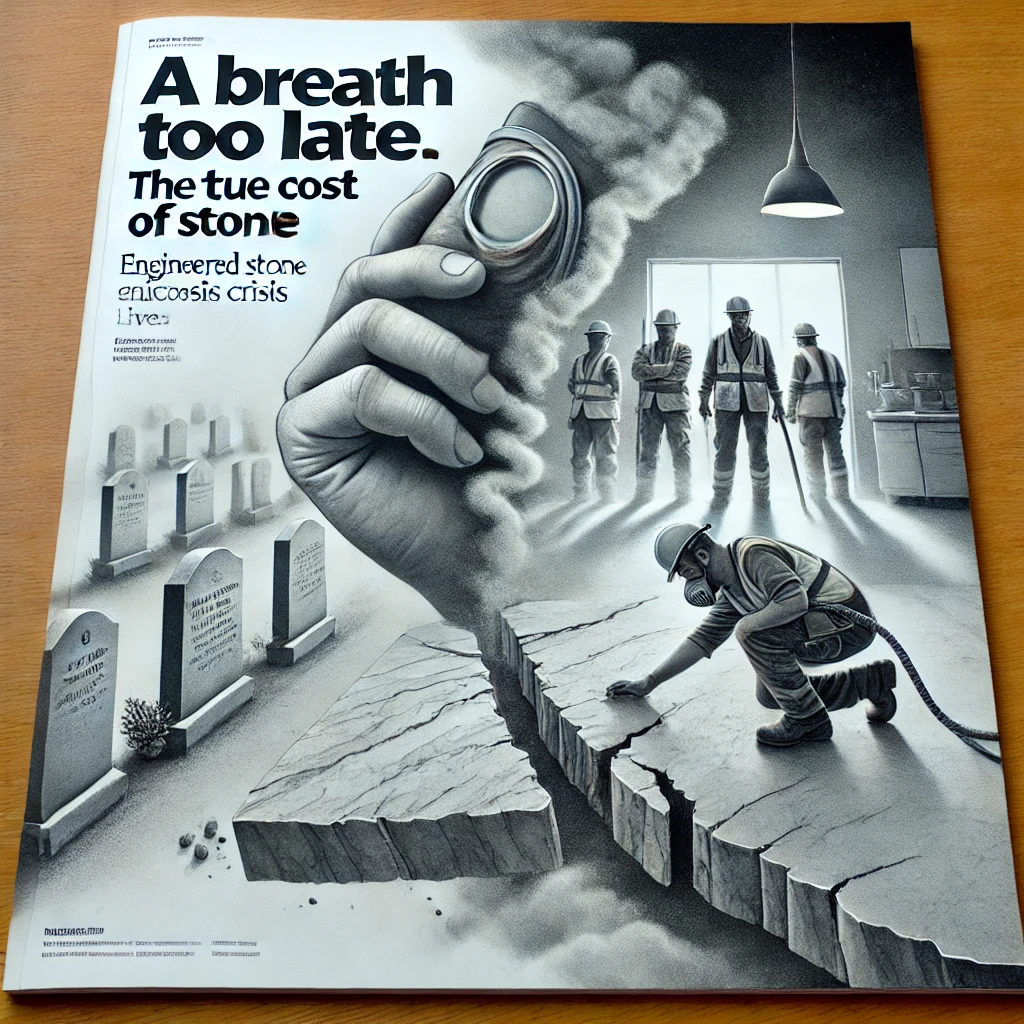
Australia's belated ban on engineered stone is a stark reminder of the cost of regulatory failure. It’s a story of greed, neglect, and an inexplicable willingness to sacrifice workers' lives for the sake of polished benchtops and cheap home renovations. The first known case of silicosis linked to engineered stone was identified in 2015, a warning shot fired into a complacent system. Yet it took nearly a decade for authorities to implement a full ban, a delay that has condemned thousands to a slow, suffocating death.
A Preventable Epidemic
Engineered stone, praised for its durability and affordability, contains up to 90% crystalline silica. Cutting, grinding, and polishing the material releases a fine, deadly dust that lodges in the lungs, causing silicosis—a progressive, incurable disease that scars the lung tissue and leaves workers gasping for air.
In 2015, the link between engineered stone and silicosis was undeniable. The first case should have been a turning point. Instead, Australia sleepwalked into an epidemic. By 2022, over 600 cases were reported, and experts warn thousands more will emerge as workers exposed years ago begin to show symptoms. The scale of the crisis mirrors the horrors of asbestos exposure—a preventable tragedy allowed to unfold because of industry influence and regulatory inertia.
A Slow and Cynical Response
Despite the mounting evidence, Australia’s response was inexcusably slow. It wasn’t until July 1, 2024, that the first stage of a ban took effect, restricting the manufacturing, supply, processing, and installation of engineered stone. A full importation ban did not follow until January 1, 2025. This phased approach, justified as a means to cushion economic impacts, was a cowardly concession to industry interests. Every delay, every slab imported, was another nail in the coffin for countless workers.
The consequences of this inaction are staggering. Among those affected is Ken Parker, a father of two who spent years cutting and polishing engineered stone. Diagnosed with silicosis in his mid-thirties, his once-healthy lungs now betray him, leaving him reliant on oxygen. Or the case of a 22-year-old stonemason from Queensland, one of the youngest victims, sentenced to a lifetime of debilitating illness after just a few years in the trade. These are not isolated stories; they are the human faces of systemic failure.
The Role of Complicity
The blame stretches far and wide. Regulators and health authorities, tasked with protecting workers, failed to act when the dangers became clear. A fascination with self-regulation—a misguided belief that industries can police themselves—allowed unsafe practices to continue unchecked. Meanwhile, the construction industry, motivated by profit, lobbied against tighter controls and delayed meaningful reform.
Equally complicit is a culture that glorifies home renovations. The demand for sleek, low-cost kitchen counters, fueled by reality TV shows and glossy magazines, turned consumers into unwitting accomplices. Each pristine benchtop was bought at a cost far greater than its sticker price: the health and lives of the workers who made it possible.
Justice Delayed
The belated ban is a necessary step, but it’s far too late for those already suffering. Worse, the timeline reflects a broader failure to prioritize human life over profit. While policymakers dragged their feet, lives were being irreparably damaged. This isn’t just a public health disaster—it’s a moral failing.
Let the lessons of engineered stone be clear. No material possession is worth a human life. Accountability must reach not only the companies that profited but also the regulators who failed in their duty. If Australia is to prevent future tragedies, it must dismantle the structures that prioritize profit over safety and rebuild a system that values people above all else.
Want to learn more? Try these sources.: Department of Employment and Workplace Relations, "Prohibition on the use of engineered stone." Monash University, "Breathing life into silicosis research." ABC News, "Silicosis-causing fake stone imports to be banned from January 1." Wikipedia, "Silicosis."
